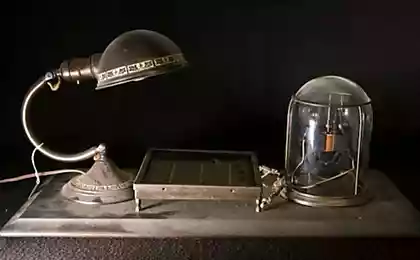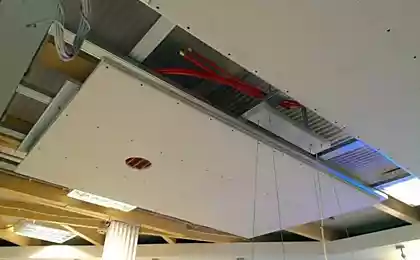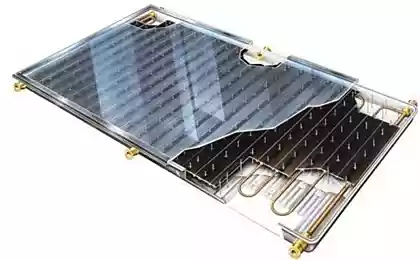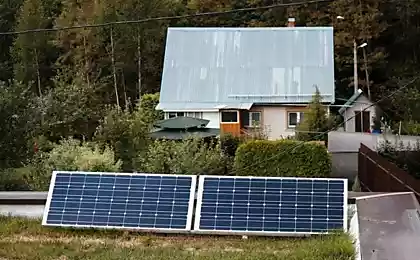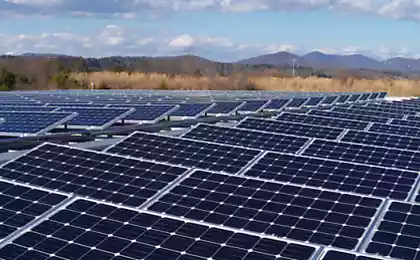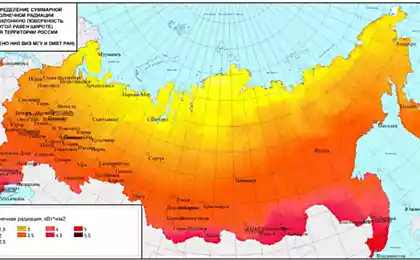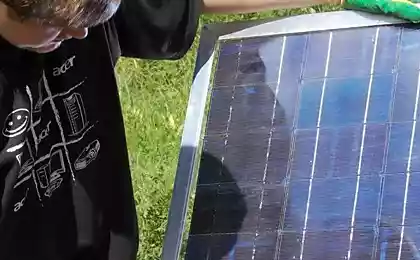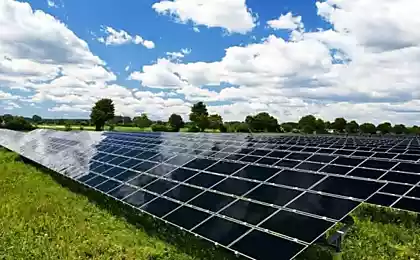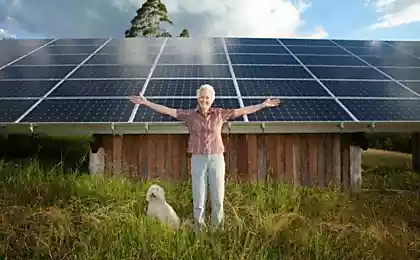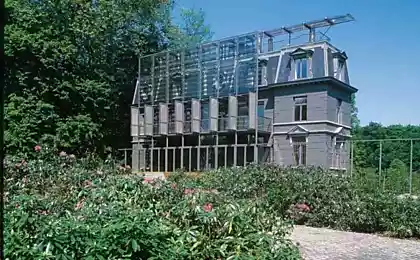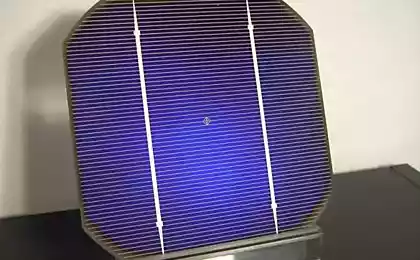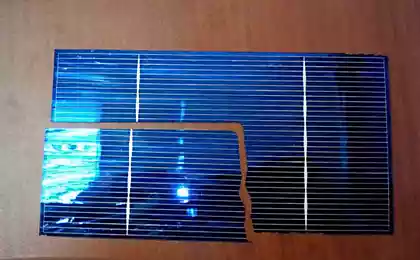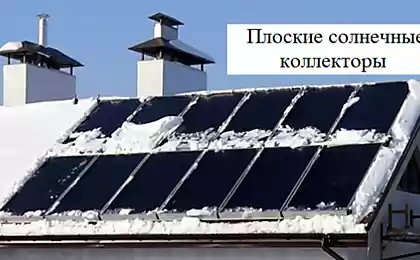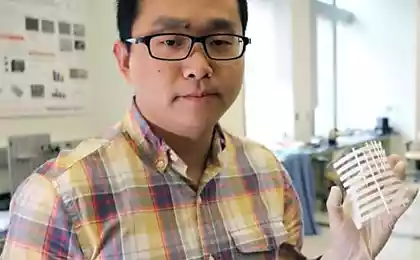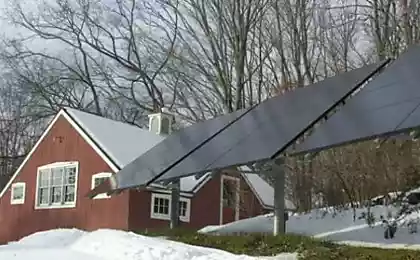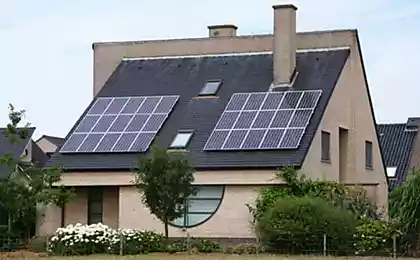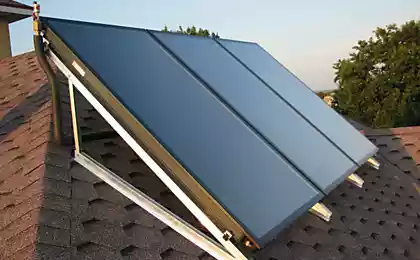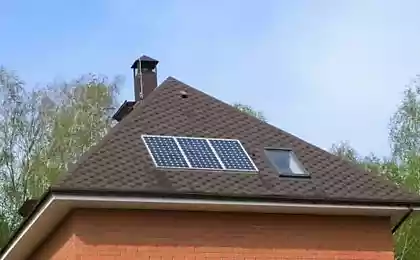457
Scientists have increased the efficiency of the translucent solar panels
A group of scientists from the Swiss Federal Institute for materials science and technology have developed an organic solar battery with a high factor of transparency and efficiency. The panels can be used to cover large areas, including Windows, roofs and greenhouses.
Semitransparent organic solar panel (cap) is not costly to manufacture and suitable for various surfaces. But the main problem of this type of batteries is the conversion rate. Engineers have to choose or transparency, or the efficiency of energy conversion. Researchers from the Swiss Federal Institute for materials science and technology managed to solve the issue.
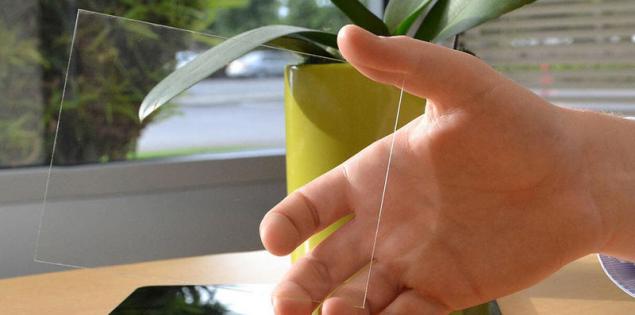
Usually the role of the active materials in the OSP performs the two-component mixture of the light absorbing donor polymer and fullerene acceptor. To increase the transparency panel to reduce the density of two-component film. As a result, the energy conversion efficiency is reduced because a thin layer will absorb less sunlight.
Swiss researchers used a three-component mixture by adding a flexible and transparent electrode coating, which is applied in the lamination process of the panel. Also, the engineers added polymer-fullerenol layer by a special dye which absorbs light only in the near-infrared range. As a result, the group of scientists received organic solar panels with a transparency score of 51% and a power conversion efficiency of 3% higher than that of peers. The results of the study were published in the STAM journal.
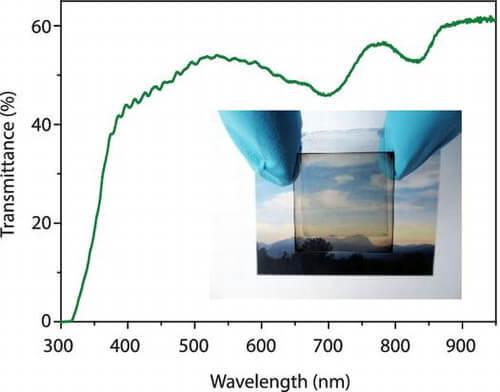
In may, IMEC (Micro - and nano-electronic research center in Leuven) presented the first translucent perovskites module with a record conversion rate of 12%. In combination with traditional silicon elements such panels can give 20.2 per cent efficiency. published
P. S. And remember, only by changing their consumption — together we change the world! ©
Source: hightech.fm/2017/03/15/transparent_panels
Semitransparent organic solar panel (cap) is not costly to manufacture and suitable for various surfaces. But the main problem of this type of batteries is the conversion rate. Engineers have to choose or transparency, or the efficiency of energy conversion. Researchers from the Swiss Federal Institute for materials science and technology managed to solve the issue.

Usually the role of the active materials in the OSP performs the two-component mixture of the light absorbing donor polymer and fullerene acceptor. To increase the transparency panel to reduce the density of two-component film. As a result, the energy conversion efficiency is reduced because a thin layer will absorb less sunlight.
Swiss researchers used a three-component mixture by adding a flexible and transparent electrode coating, which is applied in the lamination process of the panel. Also, the engineers added polymer-fullerenol layer by a special dye which absorbs light only in the near-infrared range. As a result, the group of scientists received organic solar panels with a transparency score of 51% and a power conversion efficiency of 3% higher than that of peers. The results of the study were published in the STAM journal.

In may, IMEC (Micro - and nano-electronic research center in Leuven) presented the first translucent perovskites module with a record conversion rate of 12%. In combination with traditional silicon elements such panels can give 20.2 per cent efficiency. published
P. S. And remember, only by changing their consumption — together we change the world! ©
Source: hightech.fm/2017/03/15/transparent_panels
Power electric hypercar Artega Scalo Superelletra more than 1000 horses
If your man is the Eternal adolescent...
